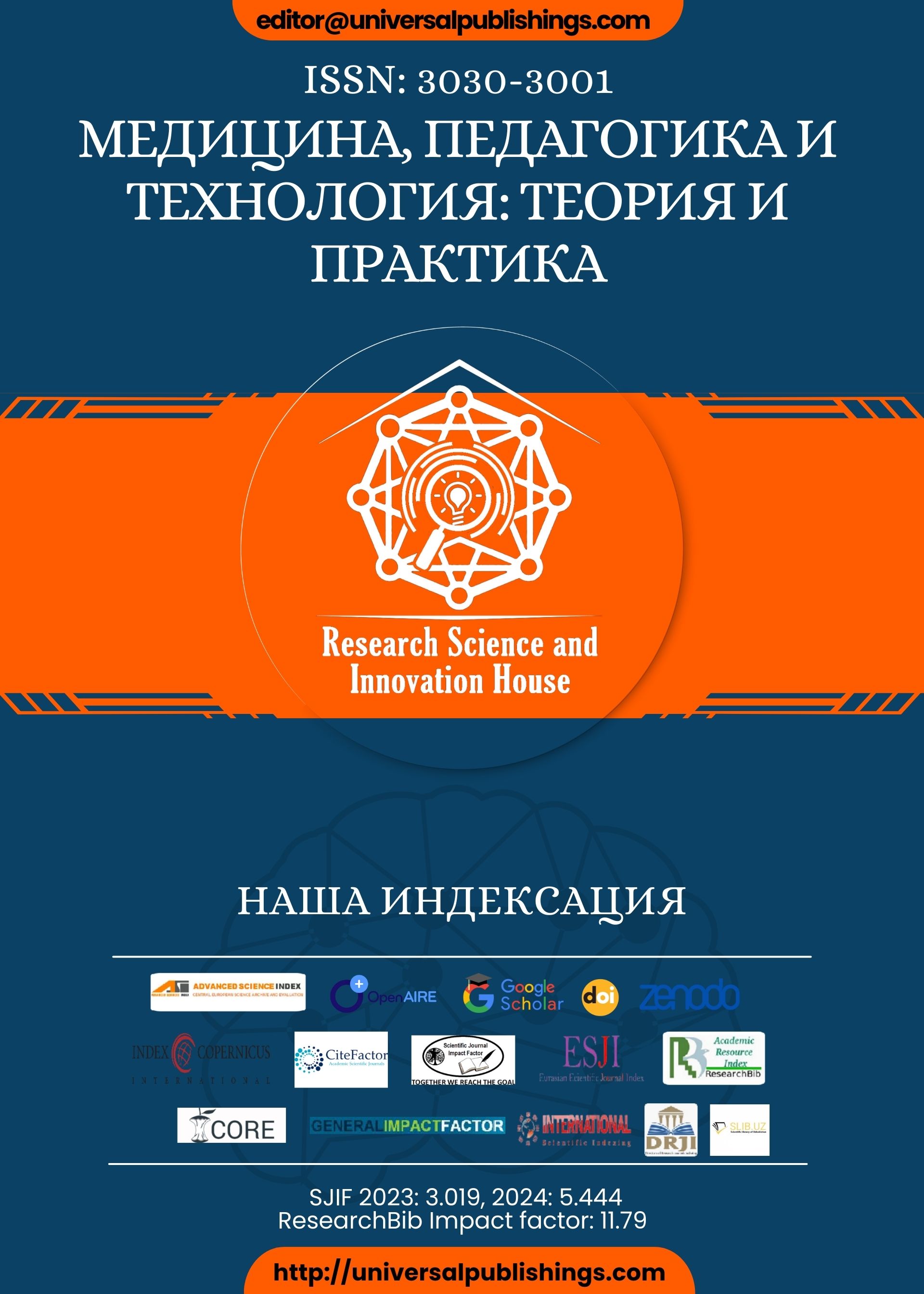Abstract
This article focuses on the analysis of Emily Dickinson's poems, and the elements of transcendentalism in her poetry are discussed separately. First of all, in this article, the unique features of the poet's work are emphasized, and the character traits of the transcendentalism stream are expressed separately. All the sources shown in the article are scientifically proven sources and are explained through examples. Although the concept of “transcendentalism” is a difficult word, it shows a very simple idea. The representatives of this stream are such people who describe the world and nature as they are. They approach the definition of something without excessive decorations and exaggerations. Emily Dickinson is one such writer. In particular, she avoided perfecting the depiction of nature.
References
Baldi, Sergio. "The Poetry of Emily Dickinson (1956)."The Sewanee Review, Jul. -Sep., 1960, Vol. 68, No. 3, Italian Criticism of American Literature: An Anthology (Jul. -Sep., 1960), pp. 438-449. The Johns Hopkins University Press. Stable URL: http://www.jstor.com/stable/2754060
Barker, Wendy. “Emily Dickinson and poetic strategy.” The Cambridge Companion to Emily Dickinson. Ed. Wendy Martin. Cambridge University Press, United Kingdom. 2002, 77-91.
Dickinson, Emily. “A Bird came down the Walk” 1862, Dickinson packet, lines 3-4;
Gaybulloyeva, V. S., & Khamdamova, S. B. (2024). THEMATIC
ANALYSIS OF EMILY DICKINSON’S EARLY POETRY. Educational Research in Universal Sciences, 3(1 SPECIAL), 747–752.
Gaybulloyeva Vazira Shokirovna. (2024). THE MOTIFS OF ROMANTICISM IN EMILY DICKINSON’S POETRY. МЕДИЦИНА, ПЕДАГОГИКА И ТЕХНОЛОГИЯ: ТЕОРИЯ И ПРАКТИКА, 2(5), 506–514. https://zenodo.org/records/11239141
G`aybullayeva, V. (2023). TRANSCENDENTALISM IN EMILY DICKINSON’S POETRY. Theoretical Aspects in the Formation of Pedagogical Sciences, 2(13), 27–31.
Arnold. Matthew. (1965). “the Study of Poetry”. Essay on English Literature. Ed. F. W. Bateson (London: University of London Press).
Barker, Wendy. “Emily Dickinson and poetic strategy.” The Cambridge Companion to Emily Dickinson. Ed. Wendy Martin. Cambridge University Press, United Kingdom. 2002, 77-91.
Bickman M. The unsounded Center. Jungian studies in American Romanticism. The University of North Carolina Press, 1980.
Bowra M. The Romantic Imagination. London, Oxford University Press, 1961.
Bush D. Mythology and the Romantic Tradition in the English Poetry. Cambridge, Mass., Harvard University Press, 1937.
Chase Bramlet. Romanticism and Transcendentalism: Hawthorne’s Devil in the Dark. – Illinois, 2020 – p. 54
Dickinson, Emily. “A Bird came down the Walk” 1862, Dickinson packet, lines 3-4;
Utkerovna, B. S. (2024). IMAGE OF CHILDREN IN UZBEK LITERATURE. TA'LIM VA RIVOJLANISH TAHLILI ONLAYN ILMIY JURNALI, 4(5), 103-108.
Berdiyeva, S. (2023). A STORY-BASED APPROACH IN TEACHING FOREIGN LANGUAGE. Modern Science and Research, 2(10), 262-266.
Berdiyeva, S. (2024). EXPLORING INNOVATIVE APPROACHES TO TEACHING. Modern Science and Research, 3(1), 923-927.
Berdiyeva, S. (2024). TEACHING YOUNG LEARNERS THROUGH THE USE OF CLIL METHOD. Modern Science and Research, 3(2), 473-480.
Safarova, Z. (2024). G ‘AFUR G ‘ULOMNING “SHUM BOLA” ASARI INGLIZCHA TARJIMASIDA MILLIYLIKNING IFODALANISHI. ЦЕНТР НАУЧНЫХ ПУБЛИКАЦИЙ (buxdu. uz), 45(45).
Berdiyeva Sitora Utkerovna. (2024). "SHUM BOLA" ASARINING TARJIMASIDA MILLIY YUMORISTIK XUSUSIYATLAR. МЕДИЦИНА, ПЕДАГОГИКА И ТЕХНОЛОГИЯ: ТЕОРИЯ И ПРАКТИКА, 2(4), 420–430. https://doi.org/10.5281/zenodo.10968935
Berdiyeva, S. (2023). UNLOCKING LANGUAGE LEARNING POTENTIAL: THE IMPACT OF MULTIMEDIA IN LANGUAGE EDUCATION. Modern Science and Research, 2(12), 314-318.
Safarova, Z. T., & Berdiyeva, S. U. (2024). TRANSLATION PROBLEMS OF THE STORY “NAUGHTY BOY”. Modern Scientific Research International Scientific Journal, 2(2), 10-16.
Berdiyeva, S. U. (2023). THE DIFFERENCE BETWEEN GAME- BASED LEARNING AND GAMIFICATION [Data set].
22. Utkerovna, B. S. (2023). Teaching Grammar Effectively: Strategies for Success. American Journal of Language, Literacy and Learning in STEM Education (2993-2769), 1(10), 241-245.
Utkerovna, B. S. (2023). Effective Ways of Improving Language Learners’ Communication Skills through Story-Based Approach. American Journal of Language, Literacy and Learning in STEM Education (2993-2769), 1(9), 563-567.
Berdiyeva, S. (2023). Advantages and Disadvantages of Teaching through Role-Playing Activities. In Academic International Conference on Multi- Disciplinary Studies and Education (Vol. 1, No. 19, pp. 88-92).
Berdiyeva, S. (2023). A STORY-BASED APPROACH IN TEACHING FOREIGN LANGUAGE. Modern Science and Research, 2(10), 262-266.
Berdiyeva, S. U. (2023). THE DIFFERENCE BETWEEN GAME- BASED LEARNING AND GAMIFICATION [Data set]. Zenodo.
Utkerovna, S. (2023). BENEFITS OF TEACHING FOREIGN LANGUAGES THROUGH ROLE-PLAYING ACTIVITIES. Modern Science and Research, 2(10), 723-729.
Utkerovna, B. S. (2023). SHUM BOLA ASARINING TARJIMASIDA TARJIMON MAHORATI. DENMARK" THEORETICAL AND PRACTICAL FOUNDATIONS OF SCIENTIFIC PROGRESS IN MODERN SOCIETY", 14(1).
Utkirovna, B. S. (2023). Characteristics of the Works of Charles Dickens. European Science Methodical Journal, 1(3), 24-28.
Berdiyeva, S. (2023). THE IMPORTANCE OF ROLE-PLAYING ACTIVITIES IN IMPROVING LEARNERS’LANGUAGE SKILLS. Modern Science and Research, 2(9), 75-78.
Хасанова Шахноза Баходировна. (2024). ФИЛOСOФСКAЯ ПРИРOДA ЛИРИКИ И. AННЕНСКOГO. МЕДИЦИНА, ПЕДАГОГИКА И ТЕХНОЛОГИЯ: ТЕОРИЯ И ПРАКТИКА, 2(5), 258–267. https://doi.org/10.5281/zenodo.11188698
Хасанова Шахноза Баходировна. (2024). ИСПОЛЬЗОВАНИЕ ФРАЗЕОЛОГИЗМОВ ПРИ ОБУЧЕНИИ ПРОИЗНОШЕНИЮ, ГРАММАТИКЕ, ЛЕКСИКЕ И ПЕРЕВОДУ. МЕДИЦИНА, ПЕДАГОГИКА И ТЕХНОЛОГИЯ: ТЕОРИЯ И ПРАКТИКА, 2(4), 431–440. https://doi.org/10.5281/zenodo.10968956
Хасанова, Ш. (2024). PHRASEOLOGICAL UNITS OF THE RUSSIAN LANGUAGE. MODERN SCIENCE АND RESEARCH, 3(4), 128–133. https://doi.org/10.5281/zenodo.10936168
Баходировна, Х. Ш. (2024). Из Истории Изучения Пословиц И Поговорок. Miasto Przyszłości, 46, 513–520. Retrieved from https://miastoprzyszlosci.com.pl/index.php/mp/article/view/2892
Хасанова, Ш. (2024). https://doi.org/10.5281/zenodo.10651477. MODERN SCIENCE AND RESEARCH, 3(2), 425–435. https://doi.org/10.5281/zenodo.10651477
Xasanova, S. (2024). DIFFERENCE BETWEEN PROVERB AND SAYING. MODERN SCIENCE AND RESEARCH, 3(1), 140–147. https://doi.org/10.5281/zenodo.10467418
Xasanova, S., & murodova, D. (2023). REPRESENTATION OF THE SYSTEMIC RELATIONS OF RUSSIAN VOCABULARY IN PROVERBS AND SAYINGS. Modern Science and Research, 2(10), 276–280. Retrieved from https://inlibrary.uz/index.php/science-research/article/view/24346
Xasanova, S. (2023). USING EXPRESSIVE VOCABULARY IN RUSSIAN PROVERBS. Modern Science and Research, 2(10), 403–408. Retrieved from https://inlibrary.uz/index.php/science-research/article/view/25248
Hasanova, S. (2023). SYSTEM RELATIONS IN THE RUSSIAN LANGUAGE VOCABULARY. Modern Science and Research, 2(9), 72–74. Retrieved from https://inlibrary.uz/index.php/science-research/article/view/23900
Баходировна, Х. Ш. (2023). Гендерная Лексика В Русском Языке. International Journal of Formal Education, 2(11), 324–331. Retrieved from http://journals.academiczone.net/index.php/ijfe/article/view/1505
Хасанова Шахноза Баходировна. (2023). РЕПРЕЗЕНТАЦИЯ СИСТЕМНЫХ ОТНОШЕНИЙ РУССКОЙ ЛЕКСИКИ В ПОСЛОВИЦАХ И ПОГОВОРКАХ. International journal of education, social science & humanities. finland academic research science publishers, 11(4), 1220–1226. https://doi.org/10.5281/zenodo.7847968
Xasanova, S. (2023). STRUCTURAL – SEMANTIC CHARACTERISTICS OF PROVERBS. Modern Science and Research, 2(12), 619–625. Retrieved from https://inlibrary.uz/index.php/science-research/article/view/27109
Nigmatova Gulnoz Khamidovna, & Khasanova Shakhnoza Bakhodirovna. (2022). System Relations in the Vocabulary of the Russian Language. Global Scientific Review, 3, 44–48. Retrieved from https://www.scienticreview.com/index.php/gsr/article/view/22

